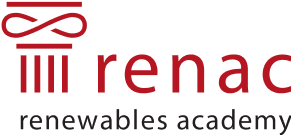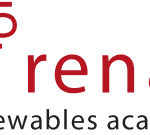This website uses cookies so that we can provide you with the best user experience possible. Cookie information is stored in your browser and performs functions such as recognising you when you return to our website and helping our team to understand which sections of the website you find most interesting and useful.
Customer-specific programmes
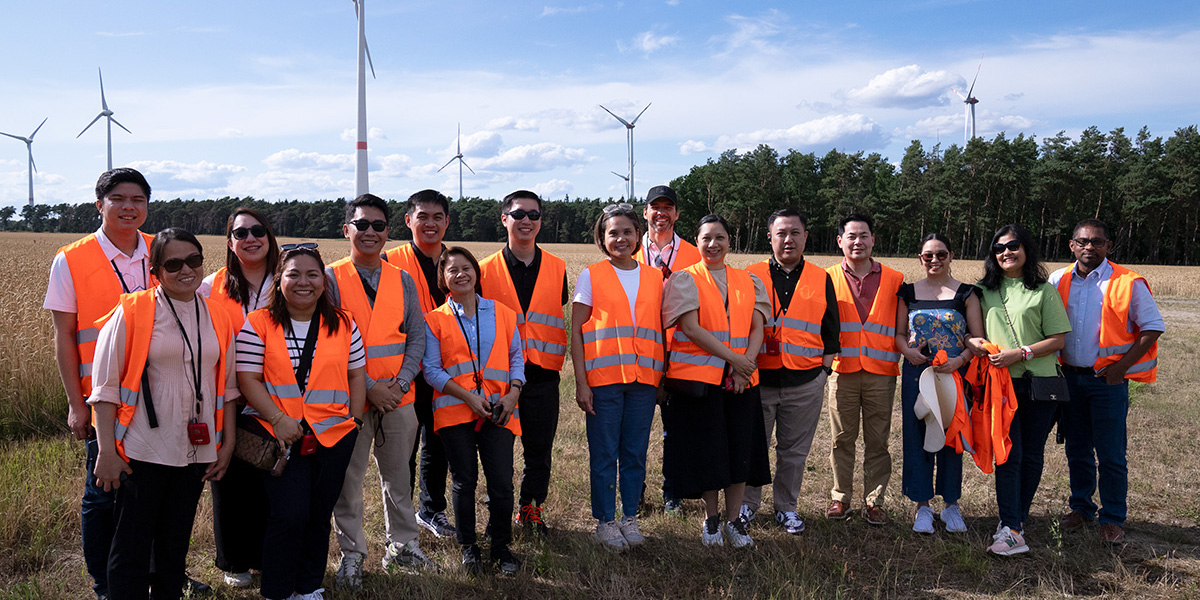
Job requirements in the green energy markets are complex and manifold. To ensure a company or organisation success, employees need extensive skills and up-to-date know-how.
RENAC customer-specific programmes offer the best way to meet participants’ training objectives:
- Analysis of participants’ capacity needs
- Selection of training contents and methods according to prior knowledge and needs
- The most suitable trainers
- Development of comprehensive materials with the highest quality standards
- Implementation of the training
Additionally, the training can be adjusted in duration and depth, organised for groups of various sizes and adapted to cover various technologies. Clients can determine when and where the training takes places.
Filter and search
Type
Name
Duration
Study time
Info
- contracts, credit risk analysis, due diligence, loan documentation, project finance, term sheet
hours
Content:
- Foundations of risk management in project financing
- Project documentation, structuring, credit analysis, rating and credit approval
- Project loan documentation
- Due Diligence – documenting a project for credit assessment
- Analysis of contracting options in the RE project setting
Learning objectives:
After completion of this course, participants will be able to:
- Explain the process of credit risk management related to RE project financing transactions
- Apply the principles of risk allocation in projects
- Discuss the project loan documentation and important clauses included in its main agreements
- Recall the principles of restructuring project financing
Target group:
This training suits professionals in the financial sector involved or interested in RE project finance who
- Have to assess RE projects from a lender’s / bank’s perspective
- Want to secure loans for a large-scale RE projects and therefore need to negotiate with banks and understand their internal procedures
- component selection, optimisation, planning, simulation of the system, sizing
Content:
• Basics on design of PV systems
• Solar resource assessment and site survey
• Sizing of main components and PV systems
• Design and yield simulation with standard software
• Economic project assessment
Learning objectives:
After the seminar participants will be able to…
• Design a PV system according to site conditions, standards and further requirements
• Select, size and match electrical components according to best practice
• Simulate the design and yield of a PV system using standard software
• Adapt the design according to economical requirements
Target group:
This training suits those who…
• Aim to become a PV system designer
• Wish to understand how a PV plant is set up properly
• Need to evaluate PV systems in more technical detail
• Optimize the design according to economical requirements
- component selection, optimisation, planning, simulation of the system, sizing
Content:
• Basics on design of PV systems
• Solar resource assessment and site survey
• Sizing of main components and PV systems
• Design and yield simulation with standard software
• Economic project assessment
Learning objectives:
• Basics on design of PV systems
• Solar resource assessment and site survey
• Sizing of main components and PV systems
• Design and yield simulation with standard software
• Economic project assessment
Target group:
This training suits those who…
• Aim to become a PV system designer
• Wish to understand how a PV plant is set up properly
• Need to evaluate PV systems in more technical detail
• Optimize the design according to economical requirements
- decarbonisation roadmap, design thinking, power system modelling, role play
Content:
- decarbonisation roadmap development for a fictional country
- Electricity system modeling (numerical modeling of power markets and electricity systems in Excel, merit order construction, Market value and communication of model result).
- Design Thinking Process (Create multidisciplinary teams, identify user groups and understand their needs and problems, development of creative ideas and solutions, creative reframing energy case study)
- Virtual or in-person study tour and executive leadership trainings
Learning objectives:
After the seminar participants will be able to:
- create a decarbonisation roadmap
- discuss typical stakeholder roles and play a role in the “the energy summit”
- apply the Design Thinking Process
- understand what is going on inside an electricity system model black box
- Present and evaluate a decarbonisation roadmap
Target group:
- Persons who like to understand and lead climate and energy dialogs and policy development.
- This course targets beginners in electricity modeling and developers or roadmaps as well as readers of studies.
- The virtual Study Tour „Decarbonisation Roadmap Development“ is designed for persons currently employed in the energy sector and related research organisations, non-governmental and not-for-profit organisations, civil society organisations, or in academia.
- cyber security, drivers of digitalisation, key technologies, risks, smart generation
hours
Content:
- Energy economics background of digitalisation of the power sector
- Opportunities and risks of digitalisation for sustainability and decarbonisation
- Key technologies
- Smart generation, transmission and consumption
- Smart markets and process
- Risks and cyber security
Learning objectives:
After completing this course, participants will be able to:
- identify the areas of the power sector which are most affected by digitalisation,
- assess potential advantages for society, the economy, and market participants arising from the digitalisation of the power sector,
- identify and explain the most important technologies which form the basis for the current digitalisation of the power sector,
- explain how these technologies can be applied in order to optimise generation, transmission, storage and consumption of electrical power,
- understand which aspects of digitalisation support decarbonisation and energy efficiency, and which can put these objectives at risk,
- demonstrate how digital technologies shape existing markets and processes, and how they may create new ones and
- describe the risks arising from increasing digitalisation of the power sector and create counter measures against potential attacks.
Target group:
This course suits those who
- Are involved in the energy sector and want to understand the link between digitalisation and energy
- Would like to get information about current trends in smart grid development
hours
Content:
- Transport and sustainability
- Electric vehicles for private transport
- Private EV charging infrastructure
Learning objectives:
After completing this online course, participants will be able to:
- Justify why transport sector must contribute to climate protection
- Name different types of electric cars and their efficiencies
- Explain elements of the charging infrastructure
Target group:
The course is designed for people who would like to get a short overview on eMobility for private transport
Content:
- Introduction to E-mobility
- Charging infrastructure
- Challenges and opportunities in grid integration of e-mobility
- Charging strategies
- Difference between urban and rural areas
- Recommended course of action for system operators
Learning objectives:
After completion of this course, participants will be able to:
- Describe how an electric drive train works and what kind of charging infrastructure is necessary for different applications.
- Be aware of the challenges and opportunities associated with the integration of electric vehicles into the grid.
- Differentiate between rural and urban mobility in terms of their implications on the grid.
- Take action on integrating electric vehicles into the grid.
Target group:
- case studies, employment, overview / general aspects
hours
Content:
- Terminology and Methods: Analysing Renewable Energy Employment Effects
- Concepts and Trends: Employment factors, etc
- Preparing Future Employees: Training and Skills Development
- The Employment Effects of Renewable Energy Deployment in Selected Countries: Three Case Studies
Learning objectives:
After completion of this course, participants will be able to:
- analyse the quantitative and qualitative employment effects of the energy transition
- identify the main concepts and trends influencing renewable energy sector employment
- describe how to prepare the ground for future renewable energy employees
- apply the (policy) lessons learned about renewable energy deployment in three different countries
Target group:
This training suits those who:
- are interested in the beneficial side effects of renewable energy in climate change mitigation
- case studies, data collection, data evaluation, energy audit process, measurement equipment, standards and norms
Content:
- Basic concepts of energy efficiency in buildings
- Definitions and differences between different types of energy audits
- Architectural design principles and passive solutions for energy efficient buildings
- Modern constructions and materials of energy efficient buildings.
- Active side: Modern building technologies
- Energy Audit Objectives and Scope
- Requirements, Roles and Responsibilities in the framework of energy audits
- Planning of energy audits
- Data collection of historical data for energy audits
- Measurement planning and measurement plan
- Gathering of information / data in the field
- Data evaluation and analysis
- The energy audit report
- Presentation of the energy audit results
- Measurements in the framework of energy audits
- From energy audit to implementation of energy efficiency measures:
- Financing energy efficiency measures in buildings
- The path from energy audit to energy management
Learning objectives:
After the seminar, participants will be able to:
- Identify the potential of energy efficiency in the built environment
- Describe energy flows within a building and their balance
- Explain architectural design principles and passive solutions for energy efficient construction
- Compare energy efficient active system in the built environment
- Group the steps of an energy audit process
- Classify the scope of different types of energy audits
- List the roles and responsibilities in the framework of energy audits
- Identify relevant data and information sources in the framework of energy audits
- Evaluate the economic feasibility of energy efficiency measures
- Prioritize energy efficiency measures
- Present the results of an energy audit
- Recognise standards for energy management processes
- Name financial instruments to promote energy efficiency
Target group:
This training suits:
- Technicians
- Engineers
- Architects
- those who want to be prepared to perform energy audits
- active side of the building, district heating, economics, legal framework, passive side of the building
Content:
- Architectural design principles and passive solutions for energy efficient buildings
- Modern constructions and materials of energy efficient buildings.
- Active side: Modern building technologies
- Energy performance of existing buildings
- Energy Efficient Procurement and Contracting
- Legal framework and government instruments
- Renewable district heating technologies
- Spatial heat planning
- Cogeneration and trigeneration
- Economics and financing
Learning objectives:
After the seminar, participants will be able to:
- Identify the potential of energy efficiency in the built environment
- Describe energy flows within a building and their balance
- Explain architectural design principles and passive solutions for energy efficient construction
- Compare energy efficient active system in the built environment
- Discuss the technological, legal and financial framework of district heating systems
Target group:
This training suits:
- Senior management positions in real estate companies
- Energy ministries and
- Municipalities
- Engineers and architects who want to get an insight into energy efficiency
- cooling processes, electricity-based cross-sectoral technologies, industrial heating
hours
Content:
• Heating and cooling
• Electricity based cross-sectoral technology
• Sectoral approaches
Learning objectives:
After the seminar, participants will be able to:
• Demonstrate the basic functions of cross-cutting technologies in industry
• Determine areas of application for cross-cutting technologies in industry
• Estimate the saving potential of cross-cutting technologies in industry
Target group:
This training suits those who
• Are new to Energy Efficiency
• Need a comprehensive but concise overview on the function and application areas of cross-cutting technologies used in industry
• Have to be aware of the relevance of the technologies and energy forms used in the industrial context
- compressed air, cooling processes, electric drives, energy management, industrial heating, pumping/ventilation systems
Content:
- Energy metering and management (planning, monitoring, tools, monitoring)
- Energy Audits: Scope, data collection and analysis
- Energy efficiency in the steam generation, distribution and application
- Energy efficiency in the compressed air generation, distribution and application
- Energy efficiency in the generation, distribution and application of industrial cooling
- Energy efficiency in electrical machines (motor, transformers, etc.)
- Energy efficiency in pumping and ventilation systems
- Introduction to high-performance technologies in industrial thermal processes
Learning objectives:
After the seminar participants will be able to:
- carry out studies to improve energy performance in industry,
- manage the implementation of energy efficiency measures in industry,
- evaluate the energy supply and energy consumption of industrial companies,
- develop an energy management action plan,
- advise/assist individuals and institutions at the implementation of energy efficiency measures,
- communicate the importance of energy efficiency,
- assist companies with the establishment of an energy management system,
- demonstrate the functions of cross-sectoral technologies in industry,
- determine areas of application for cross-sectoral technologies in industry and
- classify the saving potential of the technical measures to enhance energy efficiency
Target group:
This training suits:
- Engineers
- Technicians
Content:
- Foundations of risk management in project financing
- Project documentation, structuring, credit analysis, rating and credit approval
- Project loan documentation
- Due Diligence – documenting a project for credit assessment
- Analysis of contracting options in the RE project setting
Learning objectives:
After completion of this course, participants will be able to:
- Explain the process of credit risk management related to RE project financing transactions
- Apply the principles of risk allocation in projects
- Discuss the project loan documentation and important clauses included in its main agreements
- Recall the principles of restructuring project financing
Target group:
This training suits professionals in the financial sector involved or interested in RE project finance who
- Have to assess RE projects from a lender’s / bank’s perspective
- Want to secure loans for a large-scale RE projects and therefore need to negotiate with banks and understand their internal procedures
Content:
• Basics on design of PV systems
• Solar resource assessment and site survey
• Sizing of main components and PV systems
• Design and yield simulation with standard software
• Economic project assessment
Learning objectives:
After the seminar participants will be able to…
• Design a PV system according to site conditions, standards and further requirements
• Select, size and match electrical components according to best practice
• Simulate the design and yield of a PV system using standard software
• Adapt the design according to economical requirements
Target group:
This training suits those who…
• Aim to become a PV system designer
• Wish to understand how a PV plant is set up properly
• Need to evaluate PV systems in more technical detail
• Optimize the design according to economical requirements
Content:
• Basics on design of PV systems
• Solar resource assessment and site survey
• Sizing of main components and PV systems
• Design and yield simulation with standard software
• Economic project assessment
Learning objectives:
• Basics on design of PV systems
• Solar resource assessment and site survey
• Sizing of main components and PV systems
• Design and yield simulation with standard software
• Economic project assessment
Target group:
This training suits those who…
• Aim to become a PV system designer
• Wish to understand how a PV plant is set up properly
• Need to evaluate PV systems in more technical detail
• Optimize the design according to economical requirements
Content:
- decarbonisation roadmap development for a fictional country
- Electricity system modeling (numerical modeling of power markets and electricity systems in Excel, merit order construction, Market value and communication of model result).
- Design Thinking Process (Create multidisciplinary teams, identify user groups and understand their needs and problems, development of creative ideas and solutions, creative reframing energy case study)
- Virtual or in-person study tour and executive leadership trainings
Learning objectives:
After the seminar participants will be able to:
- create a decarbonisation roadmap
- discuss typical stakeholder roles and play a role in the “the energy summit”
- apply the Design Thinking Process
- understand what is going on inside an electricity system model black box
- Present and evaluate a decarbonisation roadmap
Target group:
- Persons who like to understand and lead climate and energy dialogs and policy development.
- This course targets beginners in electricity modeling and developers or roadmaps as well as readers of studies.
- The virtual Study Tour „Decarbonisation Roadmap Development“ is designed for persons currently employed in the energy sector and related research organisations, non-governmental and not-for-profit organisations, civil society organisations, or in academia.
Content:
- Energy economics background of digitalisation of the power sector
- Opportunities and risks of digitalisation for sustainability and decarbonisation
- Key technologies
- Smart generation, transmission and consumption
- Smart markets and process
- Risks and cyber security
Learning objectives:
After completing this course, participants will be able to:
- identify the areas of the power sector which are most affected by digitalisation,
- assess potential advantages for society, the economy, and market participants arising from the digitalisation of the power sector,
- identify and explain the most important technologies which form the basis for the current digitalisation of the power sector,
- explain how these technologies can be applied in order to optimise generation, transmission, storage and consumption of electrical power,
- understand which aspects of digitalisation support decarbonisation and energy efficiency, and which can put these objectives at risk,
- demonstrate how digital technologies shape existing markets and processes, and how they may create new ones and
- describe the risks arising from increasing digitalisation of the power sector and create counter measures against potential attacks.
Target group:
This course suits those who
- Are involved in the energy sector and want to understand the link between digitalisation and energy
- Would like to get information about current trends in smart grid development
Content:
- Transport and sustainability
- Electric vehicles for private transport
- Private EV charging infrastructure
Learning objectives:
After completing this online course, participants will be able to:
- Justify why transport sector must contribute to climate protection
- Name different types of electric cars and their efficiencies
- Explain elements of the charging infrastructure
Target group:
The course is designed for people who would like to get a short overview on eMobility for private transport
Content:
- Introduction to E-mobility
- Charging infrastructure
- Challenges and opportunities in grid integration of e-mobility
- Charging strategies
- Difference between urban and rural areas
- Recommended course of action for system operators
Learning objectives:
After completion of this course, participants will be able to:
- Describe how an electric drive train works and what kind of charging infrastructure is necessary for different applications.
- Be aware of the challenges and opportunities associated with the integration of electric vehicles into the grid.
- Differentiate between rural and urban mobility in terms of their implications on the grid.
- Take action on integrating electric vehicles into the grid.
Target group:
Content:
- Terminology and Methods: Analysing Renewable Energy Employment Effects
- Concepts and Trends: Employment factors, etc
- Preparing Future Employees: Training and Skills Development
- The Employment Effects of Renewable Energy Deployment in Selected Countries: Three Case Studies
Learning objectives:
After completion of this course, participants will be able to:
- analyse the quantitative and qualitative employment effects of the energy transition
- identify the main concepts and trends influencing renewable energy sector employment
- describe how to prepare the ground for future renewable energy employees
- apply the (policy) lessons learned about renewable energy deployment in three different countries
Target group:
This training suits those who:
- are interested in the beneficial side effects of renewable energy in climate change mitigation
Content:
- Basic concepts of energy efficiency in buildings
- Definitions and differences between different types of energy audits
- Architectural design principles and passive solutions for energy efficient buildings
- Modern constructions and materials of energy efficient buildings.
- Active side: Modern building technologies
- Energy Audit Objectives and Scope
- Requirements, Roles and Responsibilities in the framework of energy audits
- Planning of energy audits
- Data collection of historical data for energy audits
- Measurement planning and measurement plan
- Gathering of information / data in the field
- Data evaluation and analysis
- The energy audit report
- Presentation of the energy audit results
- Measurements in the framework of energy audits
- From energy audit to implementation of energy efficiency measures:
- Financing energy efficiency measures in buildings
- The path from energy audit to energy management
Learning objectives:
After the seminar, participants will be able to:
- Identify the potential of energy efficiency in the built environment
- Describe energy flows within a building and their balance
- Explain architectural design principles and passive solutions for energy efficient construction
- Compare energy efficient active system in the built environment
- Group the steps of an energy audit process
- Classify the scope of different types of energy audits
- List the roles and responsibilities in the framework of energy audits
- Identify relevant data and information sources in the framework of energy audits
- Evaluate the economic feasibility of energy efficiency measures
- Prioritize energy efficiency measures
- Present the results of an energy audit
- Recognise standards for energy management processes
- Name financial instruments to promote energy efficiency
Target group:
This training suits:
- Technicians
- Engineers
- Architects
- those who want to be prepared to perform energy audits
Content:
- Architectural design principles and passive solutions for energy efficient buildings
- Modern constructions and materials of energy efficient buildings.
- Active side: Modern building technologies
- Energy performance of existing buildings
- Energy Efficient Procurement and Contracting
- Legal framework and government instruments
- Renewable district heating technologies
- Spatial heat planning
- Cogeneration and trigeneration
- Economics and financing
Learning objectives:
After the seminar, participants will be able to:
- Identify the potential of energy efficiency in the built environment
- Describe energy flows within a building and their balance
- Explain architectural design principles and passive solutions for energy efficient construction
- Compare energy efficient active system in the built environment
- Discuss the technological, legal and financial framework of district heating systems
Target group:
This training suits:
- Senior management positions in real estate companies
- Energy ministries and
- Municipalities
- Engineers and architects who want to get an insight into energy efficiency
Content:
• Heating and cooling
• Electricity based cross-sectoral technology
• Sectoral approaches
Learning objectives:
After the seminar, participants will be able to:
• Demonstrate the basic functions of cross-cutting technologies in industry
• Determine areas of application for cross-cutting technologies in industry
• Estimate the saving potential of cross-cutting technologies in industry
Target group:
This training suits those who
• Are new to Energy Efficiency
• Need a comprehensive but concise overview on the function and application areas of cross-cutting technologies used in industry
• Have to be aware of the relevance of the technologies and energy forms used in the industrial context
Content:
- Energy metering and management (planning, monitoring, tools, monitoring)
- Energy Audits: Scope, data collection and analysis
- Energy efficiency in the steam generation, distribution and application
- Energy efficiency in the compressed air generation, distribution and application
- Energy efficiency in the generation, distribution and application of industrial cooling
- Energy efficiency in electrical machines (motor, transformers, etc.)
- Energy efficiency in pumping and ventilation systems
- Introduction to high-performance technologies in industrial thermal processes
Learning objectives:
After the seminar participants will be able to:
- carry out studies to improve energy performance in industry,
- manage the implementation of energy efficiency measures in industry,
- evaluate the energy supply and energy consumption of industrial companies,
- develop an energy management action plan,
- advise/assist individuals and institutions at the implementation of energy efficiency measures,
- communicate the importance of energy efficiency,
- assist companies with the establishment of an energy management system,
- demonstrate the functions of cross-sectoral technologies in industry,
- determine areas of application for cross-sectoral technologies in industry and
- classify the saving potential of the technical measures to enhance energy efficiency
Target group:
This training suits:
- Engineers
- Technicians
Target Groups
Public sector officials for legal frameworks, regulation and implementation:

- Ministries
- Regulators
- Local administrations
Multipliers and development organisations:

- Development corporations
- Energy agencies
- International financing institutions
- NGOs
Private sector:

- Project developers
- System integrators
- Engineers and technicians
- Investors
- Financing institutions
- Grid operators
Capacity building and dissemination sector:

- Public and private training institutions
- Vocational training institutions
- Universities
Value Chain
We design and implement customer-specific programmes and services along the value chain in a holistic concept.
Our approach to Renewable Energy (RE) and Energy Efficiency (EE) is manifold: technology related knowledge is the basis and then each RENAC training and service focus on technical, economic, legal or project related aspects according to the target group. RENAC is also very active in international business matchmaking and market development services.
In our capacity building services we supply a variety of programmes to train trainers, to build training centres and to establish quality assurance processes.
Our Training Concept
Customer-Specific Programmes – what does it mean?
We offer customer-specific programmes according to client needs and participant job requirements in all green energy sectors. Based on an analysis of requested knowledge or specific job tasks and the level of existing knowledge, we develop a training concept proposal.
The concept includes recommendations for online or in-person trainings, or both. We develop the training concept taking the given resources on budget and learning time into account. After feedback from the client, we fine-tune the concept for approval.
Depending on the needs of our clients, we offer different levels of trainings (basic, intermediate, and advanced).
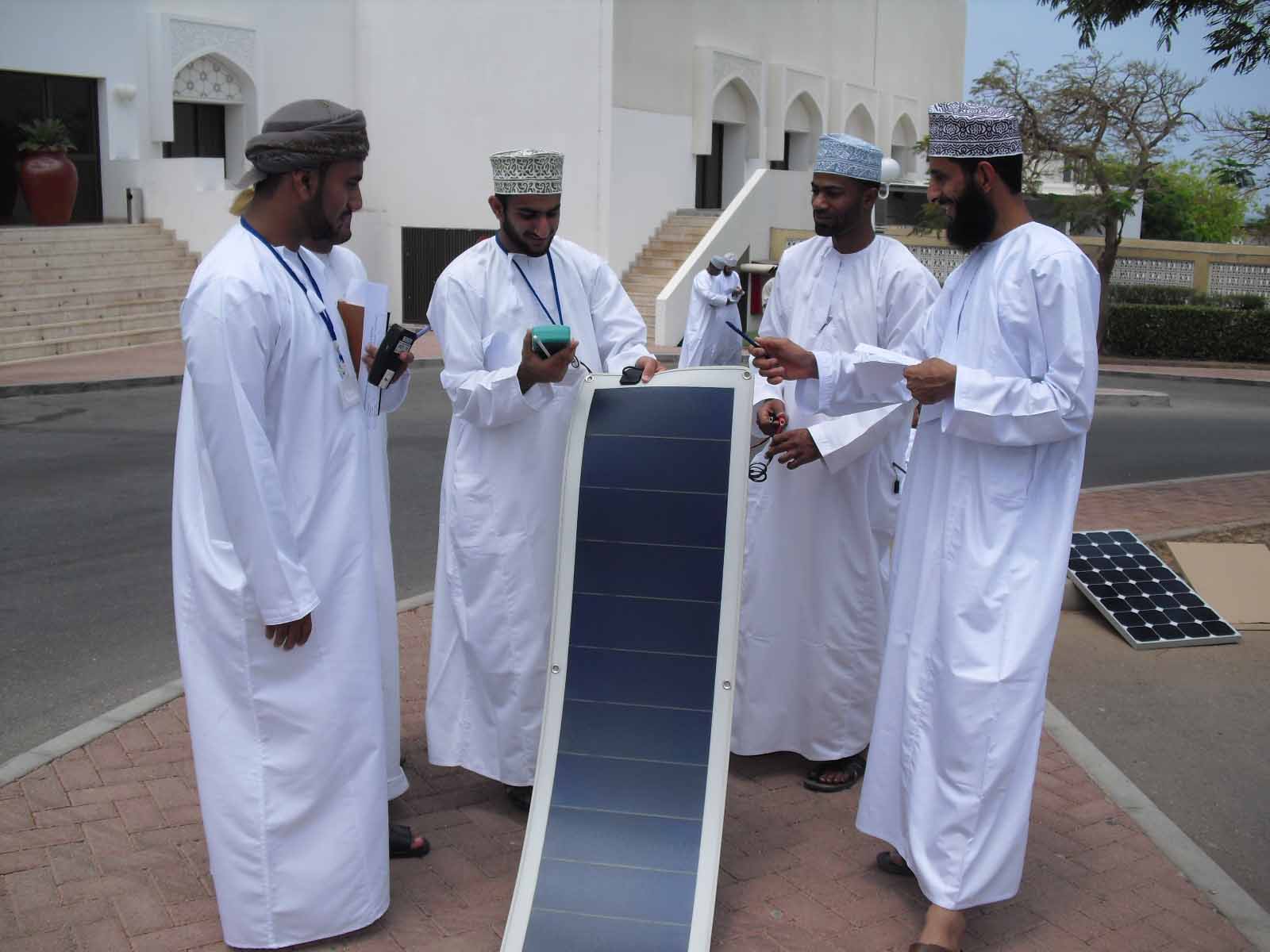
Service Catalogue
Find detailed information about the programme that best aligns with your needs and preferences.
Are you interested in a Customer-specific programmes?
Kindly fill out this questionnaire and attach it to the form on the right:
© 2024 | Renewables Academy (RENAC) AG
